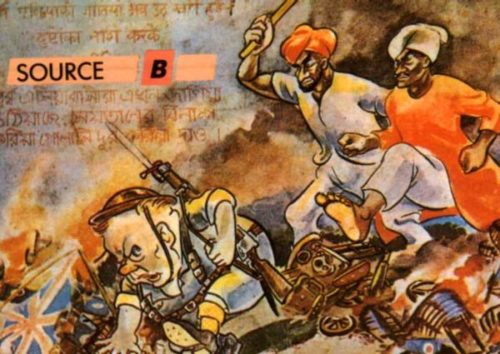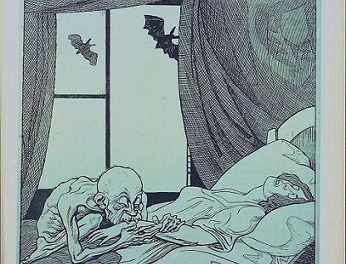A Japanese leaflet for Indian Troops and two texts by Gandhi and Nehru

A Japanese leaflet
« Quit India » Resolution Drafted By Mohandas K. Gandhi
The Gandhi Draft Was Presented to the Committee on April 27, 1942
The All-India Congress Committee has come to the following conclusions:
The committee is of the opinion that Britain is incapable of defending India. It is natural that whatever she does is for her own defense. There is the eternal conflict between Indian and British interest….The British Government has no trust in India’s political parties. …Japan’s quarrel is not with India. She is warring against the British Empire. India’s participation in the war has not been with the consent of the representatives of the Indian people. It was purely a British act. If India were freed, her first step would probably be to negotiate with Japan. The Congress is of the opinion that if the British withdrew from India, India would be able to defend herself in the event of the Japanese, or any aggressor, attacking India. The committee is, therefore, of the opinion that the British should withdraw from India….For all these reasons, the committee appeals to Britain, for the sake of her own safety, for the sake of India’s safety and for the cause of world peace, to let go her hold on India, even if she does not give up all her Asiatic and African possessions… Whether the British remain or not, it is our duty always to wipe out our unemployment, to bridge the gulf between the rich and the poor …, to exorcise the demon of untouchability…
It is not difficult to understand the simple principle of non-violent non-cooperation: First, we may not bend the knee to an aggressor, or obey any of his orders. Second, we may not look to him for any favors … Third, if he wishes to take possession of our fields we will refuse to give them up, even if we have to die in an effort to resist him. Fourth, if he is attacked by disease, or is dying of thirst and seeks our aid, we may not refuse it. Fifth, in such places where British and Japanese forces are fighting, our non-cooperation will be fruitless and unnecessary. At present, our non-cooperation with the British Government is limited. Were we to offer them complete non-cooperation when they are actually fighting, it would be tantamount to bringing our country deliberately into Japanese hands. Therefore, not to put any obstacle in the way of the British forces will often be the only way of demonstrating our non-cooperation with the Japanese.
The New York Times, August 5, 1942
Vous souhaitez lire la suite ?
Actifs dans le débat public sur l'enseignement de nos disciplines et de nos pratiques pédagogiques, nous cherchons à proposer des services multiples, à commencer par une maintenance professionnelle de nos sites. Votre cotisation est là pour nous permettre de fonctionner et nous vous en remercions.














